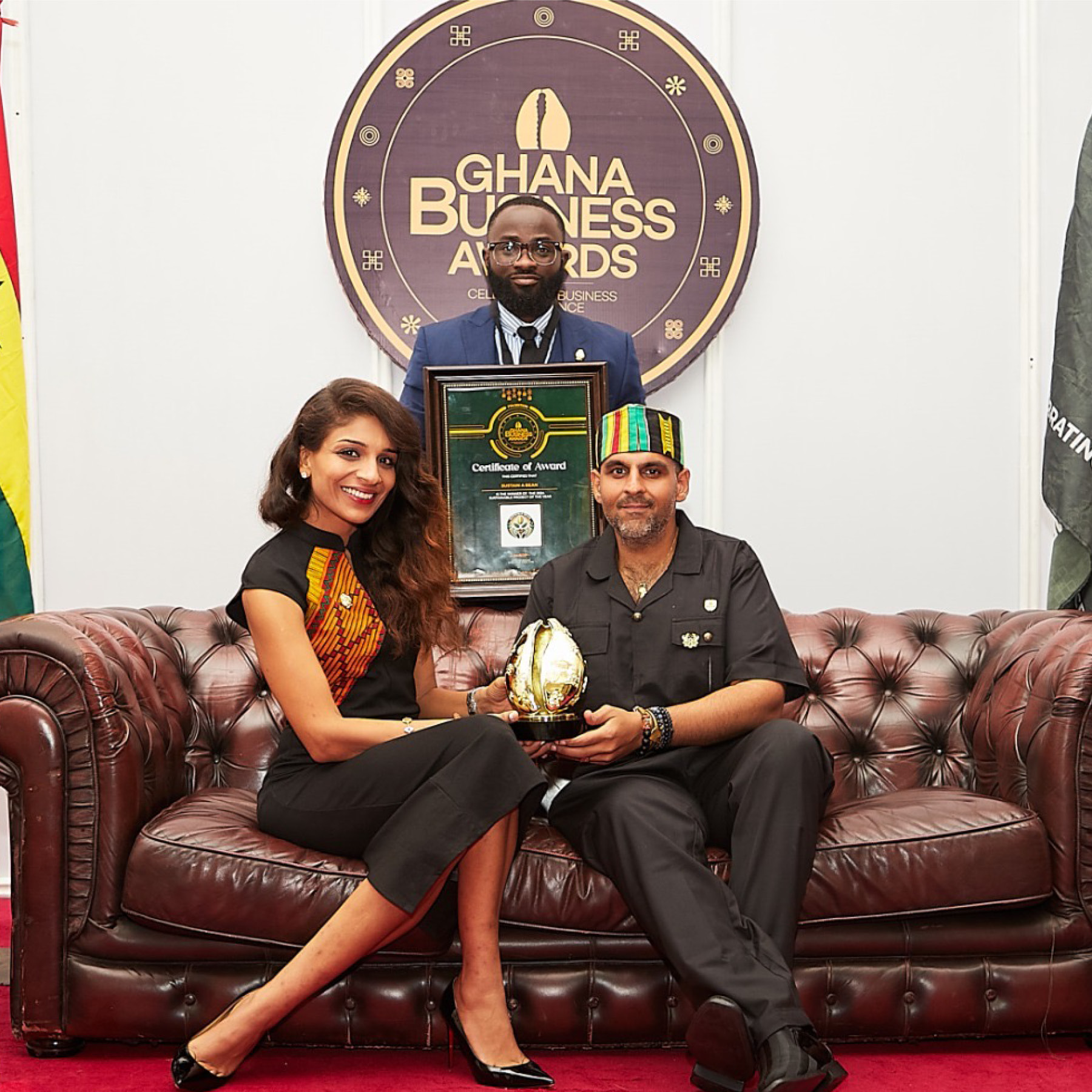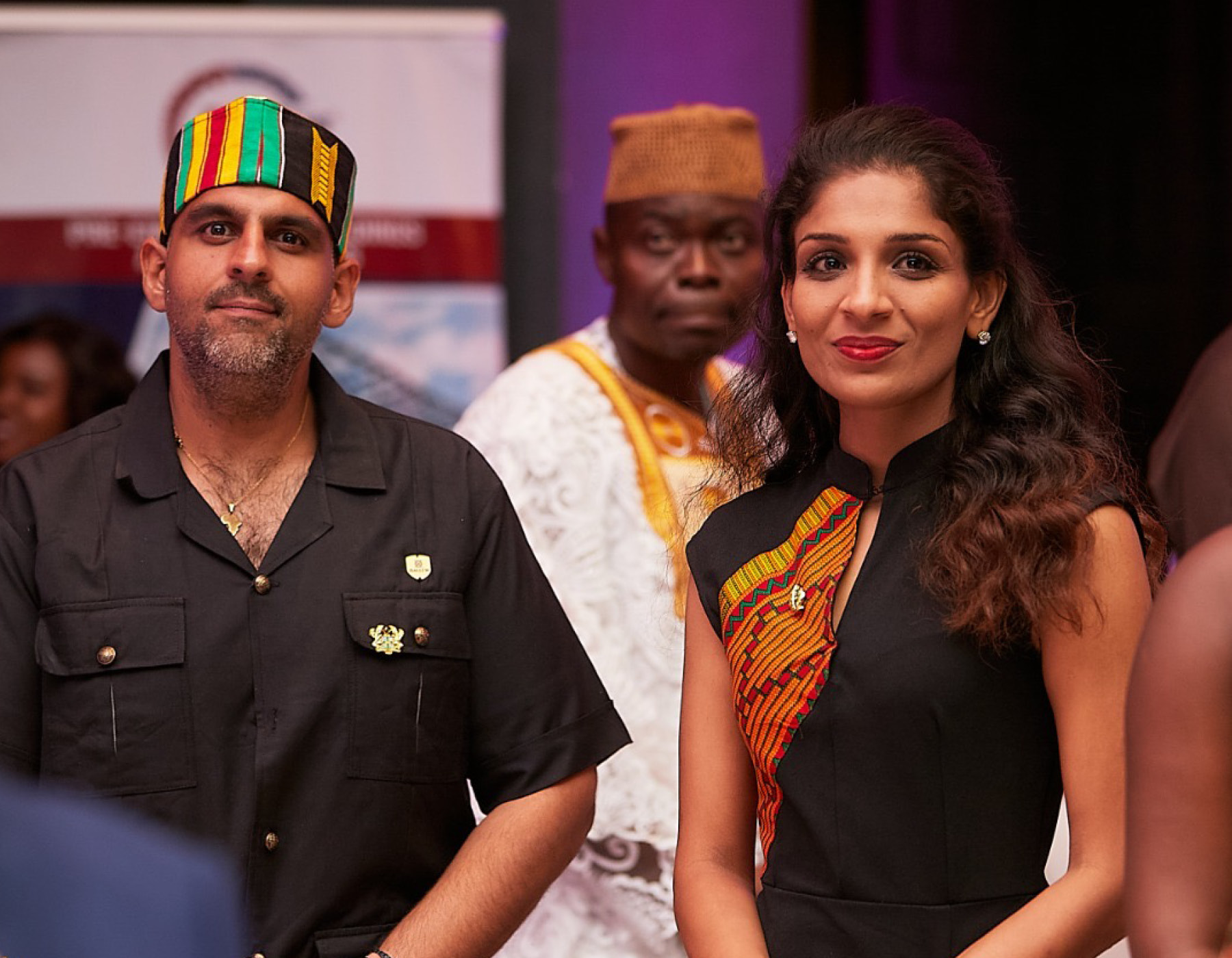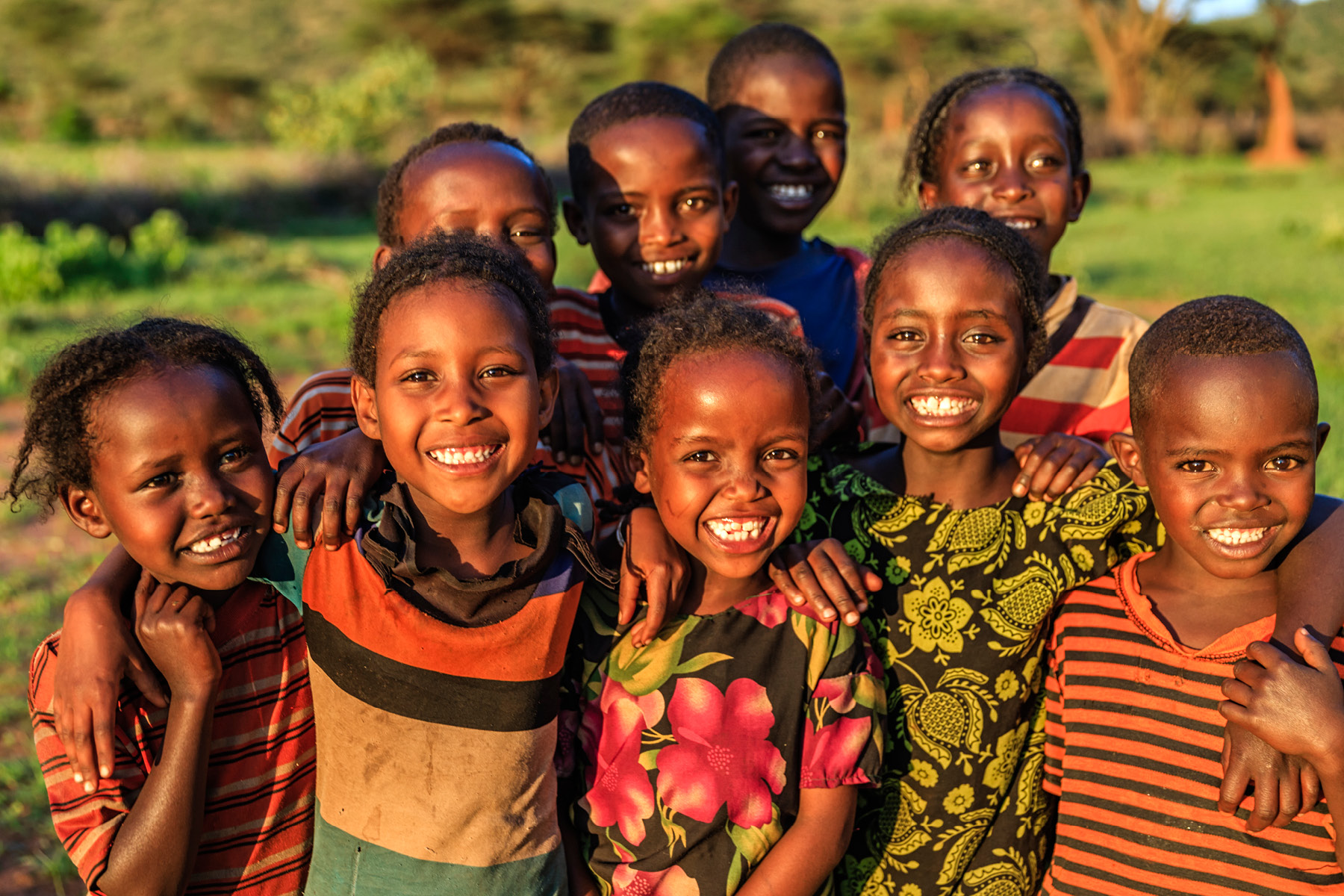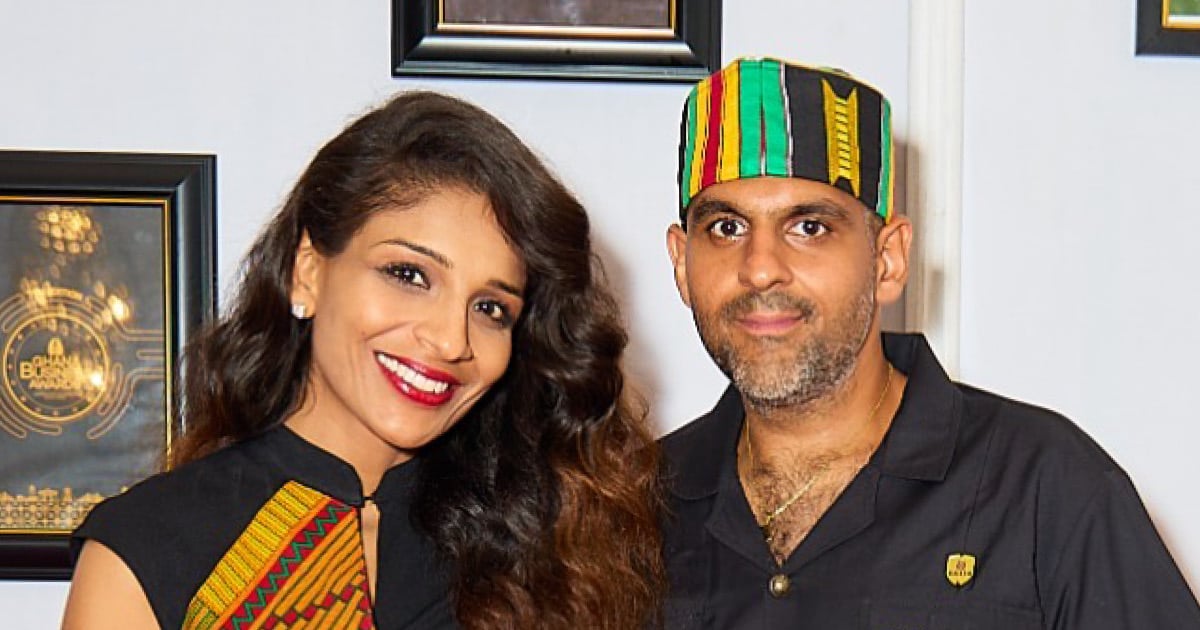For many business leaders, there are concerns that a company that puts care for communities and the environment at its heart, rather than profit, will not stand the test of time.
But Sustain-A-Bean Co-Founders Vanya Daryanani and Jason Nana Yaw Mohan say that is far from the truth. Not only will focusing on what is right now help you build a business with far-reaching impact, it also has the capacity to span generations and be self-supporting with scope to grow and develop.
When Mohan stepped into his family’s pharmaceutical business, Unichem Ghana, as the third-generation leader, it was not with apprehension of his forefathers’ expectations. Rather, he came in with a rich understanding that running an ethical business in the communities in which the company serves was as important as the bottom line.
By honoring this, he knew he would be respecting the work and expectations of both his father and grandfather, HD Mohan, who built the company in 1962 from scratch while also navigating the challenges of war and displacement. HD Mohan felt education and sustainability were core values from the outset and to be filtered through the business.
Why profit should not be the goal
With this unique concept of legacy and its importance in mind, Mohan and his wife, Daryanani, set up Sustain-A-Bean to test and develop this framework to its limits and prove that it can work both for the communities it empowers and for the strength of the business to grow.
“We feel that this is the bridge that has to be crossed,” Mohan says. “Is your business sustaining when you take it down the value chain? Are you addressing the whole ecosystem as well?

“How can we actually convert these and then how can people leave a legacy that can be regenerative and impactful?”
- Jason Nana Yaw Mohan
“It is about going beyond the traditional frameworks in corporate or social, whereby people posed to be ethical in their practices or by an obligation. How can we actually convert these and then how can people leave a legacy that can be regenerative and impactful?
“If this is my last minute, what are people going to remember me for, regardless of how successful somebody is, or where they sit or your brand? What is profit really? It is being sustainable, being regenerated for generations to come.”
Due diligence is key
While traveling the world, the couple would often come across products from Ghana that claimed to be ethical, but when looking into how this was implemented and assured, they were disappointed with the truth.
“Obviously, there are governing bodies and there are certain things that come to play, but sadly in practice there’s a lot of short-term mindsets,” Mohan says.
“People are still living in grim conditions and on less than US$1 a day; they don’t have basic fundamental rights. That hit very hard for me, I thought that if we’re not going to do it, who’s going to do it?”
Sustain-A-Bean creates regenerative, sustainable impact using an approach that combines community development, environmental stewardship and economic empowerment to aid farming communities – particularly in the cocoa industry – in a holistic way that benefits people and the environment.

“Your brand should have a meaning, a purpose, be truly ethical.”
- Vanya Daryanani
Using a combination of sponsorships, transformative community initiatives and co-branded campaigns, they demonstrate the power of sustainability and social good to other businesses.
The couple are also working on a business education legacy for generations to come.
“We’ve got a framework we’re creating called the Wisdom Keepers, which we feel when companies adapt and adopt, magic happens – because we’ve seen it through three generations,” Daryanani says.
The couple are keen to give back in all its forms and are hopeful that other CEOs will adopt the steps needed to make a higher purpose their true bottom line.
“It’s not just about profits all the time. It’s also about really leaving something so much more with your brand,” Daryanani explains.
“Your brand should have a meaning, a purpose, be truly ethical – there’s so much to it. We need to listen because when you listen with your heart, you will get compassion, empathy, forgiveness.”
The importance of like-minded peers
As part of the YPO network, which brings together visionary founders and CEOs, the couple are surrounded by responsive and innovative CEOs who share their passion. They admit this has been both encouraging and insightful.
Mohan’s father was a member of YPO and he had been brought up with an understanding of how valuable and formative having a group of peers who shared similar values could be.
Daryanani is the family officer for YPO’s Ghana chapter and it was while curating an event – Soil to Soul, which brought members up close and personal with the fantastic produce of Ghana – that the concept of Sustain-A-Bean was born.
While ensuring that it met all the requirements for a YPO event, especially that it be transformative, the moment of realization struck.
“It reached all of those who came and I thought, ‘If this touched so many people’s hearts, let’s take it to everyone through Sustain-A-Bean,’” Daryanani says.

“We want the world to be transformed magically, but happily – it should be a balanced sheet.”
- Vanya Daryanani
“That was our turning point and I will always thank YPO for that event, as it has given us a legacy of our own. You’ve set our legacy, now we want to set others’.”
The dynamic duo is proof that purpose and a legacy built on doing good are not only a blueprint for business, but also for happiness, and they are hopeful others will adopt similar outlooks in 2025.
“Probably that’s our purpose in life,” Daryanani says of the company. “But we need more hands. Apart from this family, we need more CEOs to take on their brands and make it part of them.
“It’s a ripple effect. You have to connect the dots in order to make magic happen. We want to share the values. We want the world to be transformed magically, but happily – it should be a balanced sheet.”
And one that allows a legacy to be left in all senses of the word.







